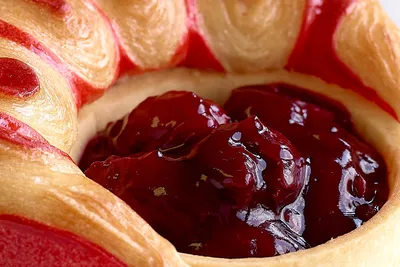The Classic Croissant
A croissant is a buttery, flaky pastry that has gained worldwide popularity. This iconic pastry is made from laminated dough, requiring flour, yeast, sugar, salt, butter, and water. The dough is folded and rolled multiple times to create thin layers of dough and butter, which is essential for its flaky texture.
The process involves mixing the ingredients, allowing the dough to ferment, and then meticulously rolling and folding it. After shaping the dough into its classic crescent form, it is left to proof before being baked to perfection. The result is a beautifully golden, crisp, and tender pastry that is famous for its delightful taste and texture

Most popular variations
🍫 Chocolate croissant: A classic croissant filled with delicious chocolate.
🥐 Almond croissant: A croissant filled with almond cream and topped with sliced almonds and powdered sugar.
🍪 Crookie: A hybrid treat combining croissants and cookies for a delightful fusion of textures and flavors.
💚 Pistachio croissant: A croissant filled with creamy pistachio paste and sometimes topped with crushed pistachios.
🌱 Vegan croissant: A croissant made without any animal products, using plant-based ingredients for a delicious alternative.
🍩 Cronut: A cross between a croissant and a doughnut, featuring the flaky layers of a croissant and the shape and texture of a doughnut.
🍞 Croissant bread: Bread made using croissant dough, offering the buttery flakiness of a croissant in a loaf form.
Blend tradition and innovation in every croissant
We develop products that support a healthier lifestyle and enhance well-being, while also being committed to sustainability. With our innovative solutions, we can help you have a better impact on consumer health and the planet. Learn more




